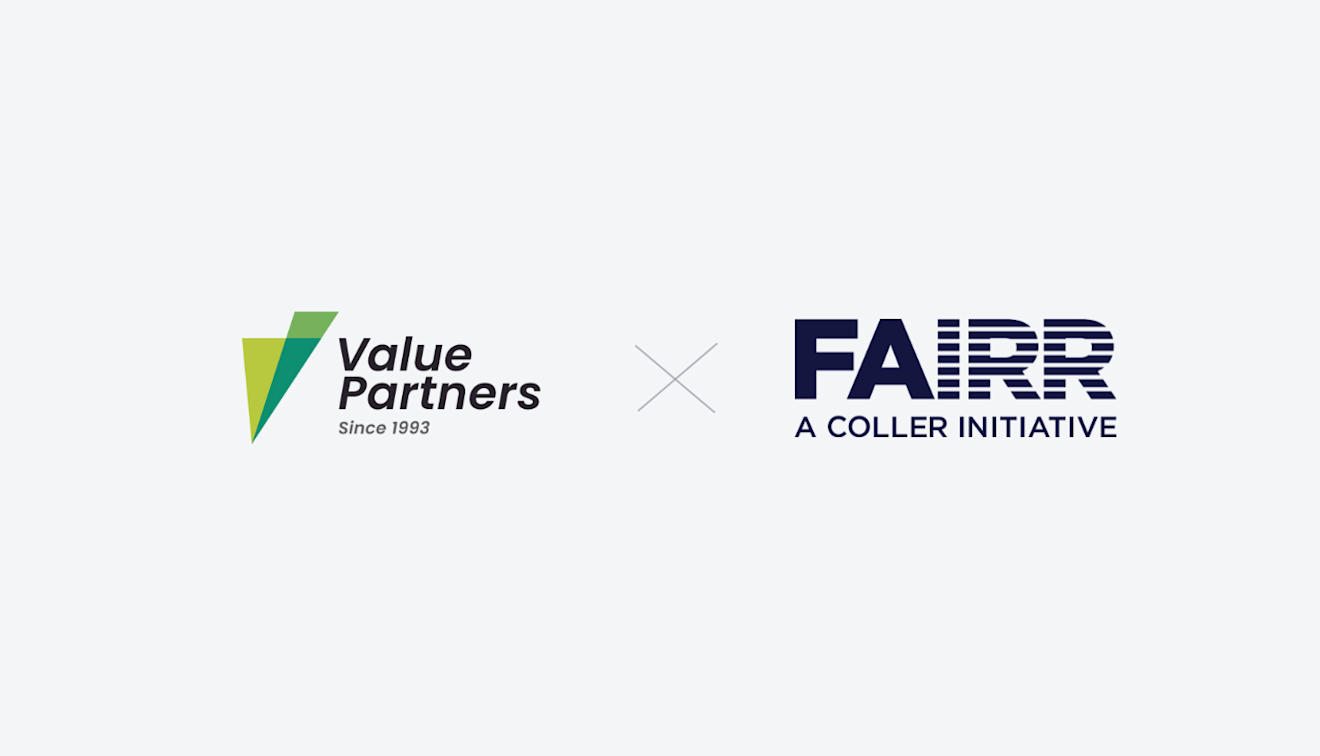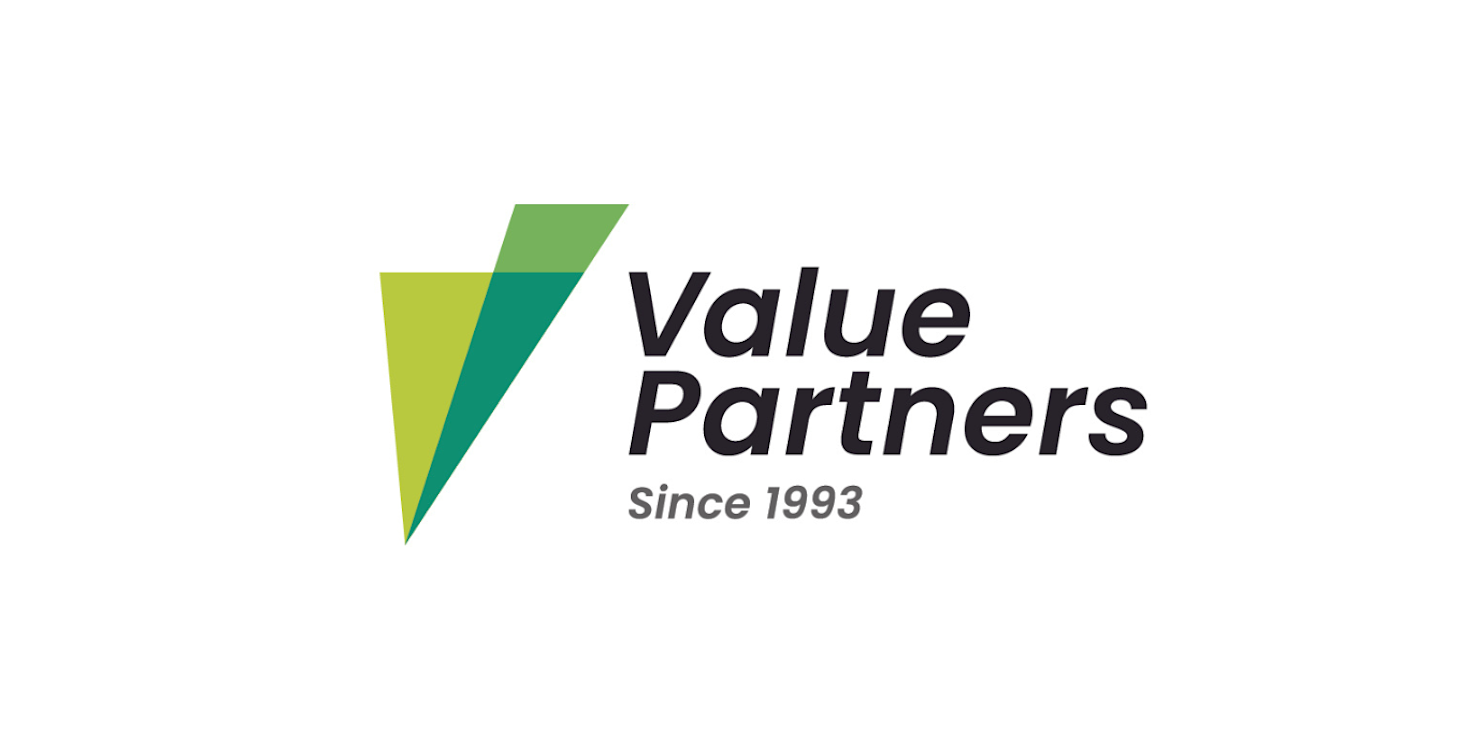Introduction
Value Partners became part of the FAIRR investor network in June 2023. This case study delves into the benefits of joining the FAIRR initiative, particularly in gaining full access to the Coller FAIRR Protein Producer Index. It also examines how this membership has influenced investment and stewardship strategies, focusing on Value Partners' participation as a signatory to the Waste & Pollution biodiversity engagement. Frank Tsui, Managing Director and Head of ESG Investment at Value Partners Group Limited, provided insights for this case study.

What motivated your decision to join the FAIRR initiative, and what advantages have you gained from being a member?
Our decision to join the FAIRR initiative was primarily motivated by our recent launch of the first Asian Article 8 Food and Nutrition Thematic Fund, which invests across the entire food value chain from farm to fork. FAIRR stands out as a leading global institution with deep expertise and sector coverage, aligning thoroughly with our fund's objectives.
Being a member of FAIRR has brought us several advantages. Firstly, FAIRR's extensive technical knowledge and network provide valuable insights and connections within the industry. Additionally, FAIRR's focus on material ESG factors aligns well with our fund priorities and binding elements—health and nutrition, biodiversity, climate, value chain management, waste, and pollution. The Coller FAIRR Protein Producer Index provides us with a robust assessment methodology and best practice examples of these elements, as well as a wealth of KPIs that measure the performance of protein producers on ESG risks and opportunities; this tool is unique in terms of its depth and coverage of companies within our portfolio.
How has FAIRR membership influenced your investment and stewardship strategies?
FAIRR plays a crucial role in our approach in a couple of areas. We developed our proprietary ESG framework to actively engage in stewardship, aiming to encourage better practices and disclosure. Our initial engagements have been focused on building relationships and groundwork. We have referenced FAIRR's research and findings to prioritise issues and develop engagement strategies, providing guidelines and specific examples from companies operating in developed markets. The materiality lens of FAIRR has also demonstrated to companies the importance of the issues and provided examples of the expected outcomes.
For engagements, we've used FAIRR assessment frameworks, questions and best practice examples as reference guidelines, particularly in bilateral engagements with companies in Asia, enriching our engagement with investee companies and ensuring our questions are thorough. For instance, FAIRR's resources have been instrumental in engaging in responsible antibiotic use, where we found that while most companies have policies in place, supply chain traceability and disclosure are lacking. We have also been leveraging the biodiversity workstream, guiding companies in the food sector using global standards that are relevant to the sector and providing valuable direction as awareness on this theme increases. By participating in the FAIRR Waste and Pollution engagement, we have worked with companies in the pork and poultry industry to address biodiversity risks.
Being part of the investor network provides members exclusive access to events. What has been your experience with these events regarding learning, information-sharing, and networking?
Becoming members of FAIRR has provided us with valuable networking opportunities both locally and globally, such as co-presenting with FAIRR for the PRI Stewardship Capacity Building Series for China. It has also given us a platform to showcase our approach, enabling us to identify areas of collaboration and gain exposure in domestic and international markets.
FAIRR's strong presence in China adds significant value, particularly considering the limited coverage of protein producers in Asia outside of FAIRR. Having FAIRR's neutral and objective support behind us helps us navigate the conservative nature of these companies.
Additionally, being based in Hong Kong, we see great potential in engaging with policymakers in China, further enhancing our position and influence in the region.
What are your expectations for the next 12 months regarding the FAIRR Initiative?
We're looking forward to increasing participation in collaborative engagements and leveraging the FAIRR's databases and research to support our engagements throughout the year. FAIRR is also focused on the opportunities within the sector and covers them through a range of projects, such as alternative proteins and regenerative agriculture research for investors, which we look forward to leveraging.
This report is provided for informational purposes only and is not intended to be, and should not be construed as, an offer, solicitation or recommendation with respect to any transaction and should not be treated as legal advice, investment advice or tax advice. Recipients should not rely upon this information as a substitute for obtaining specific legal or tax advice from their own professional legal or tax advisors. References to specific securities and their issuers are for illustrative purposes only and are not intended and should not be interpreted as recommendations to purchase or sell such securities. Indices and trademarks are the property of their respective owners. Information is subject to change based on market or other conditions.











